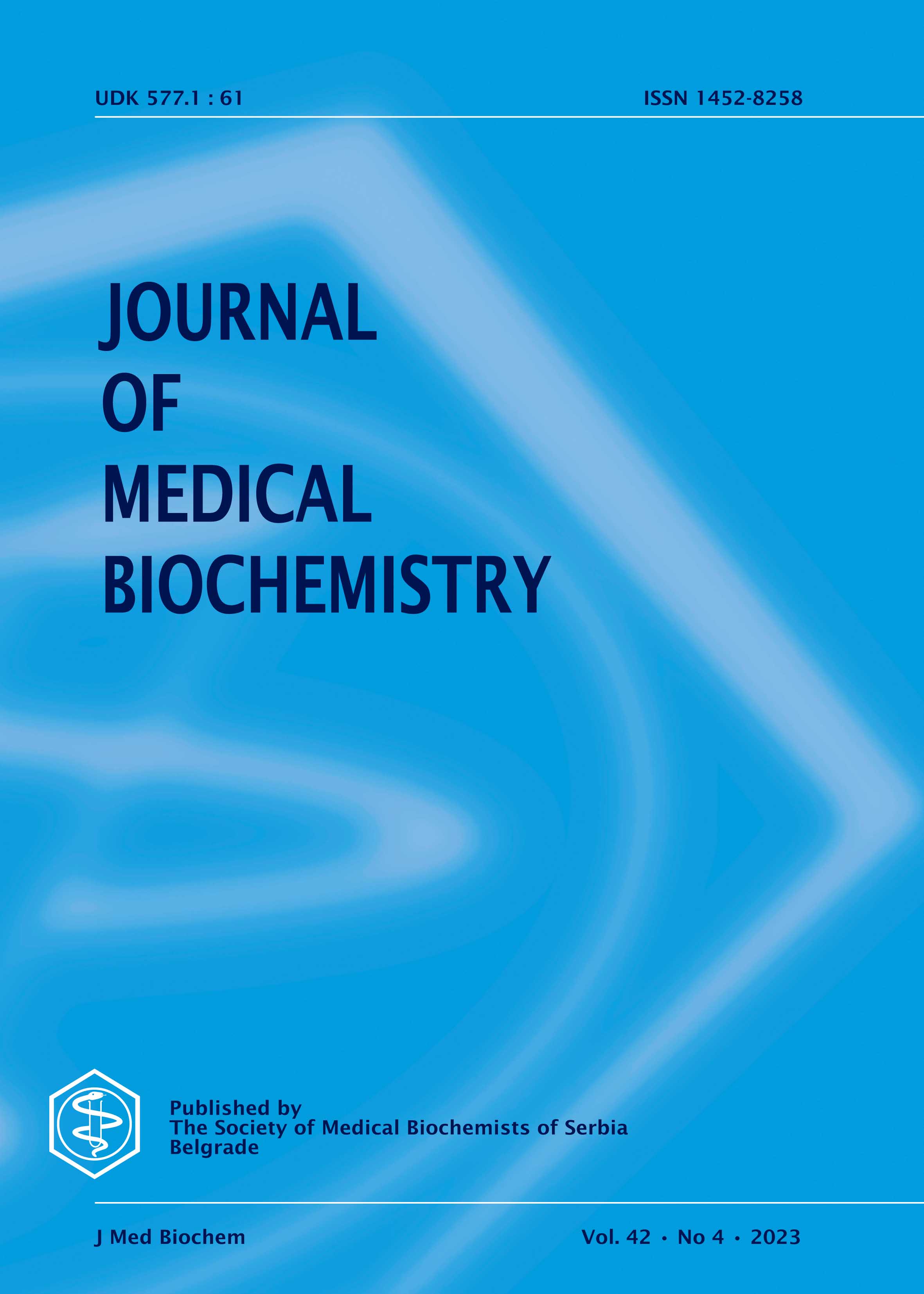The associations of PON1 and APOE polymorphisms with plasma lipid levels and the risk for late complications in type 2 diabetes patients
Abstract
Background: Besides good glycemic control, also control of lipid levels can effectively prevent or delay late type 2 diabetes (T2D) complications. As apolipoprotein E (APOE) and paraoxonase 1 (PON1) were shown to suppress atherosclerosis, we investigated the associations of common functional PON1 and APOE polymorphisms with plasma lipid levels and the risk for late complications in T2D patients.
Materials and patients: Our retrospective genetic association study included 181 T2D patients genotyped for PON1 rs622, PON1 rs854560, APOE rs429358 and APOE rs7412.
Results: PON1 rs622 G allele carriers had significantly lower LDL-C (p=0.024) and lower LDL/HDL ratio (p=0.031) under recessive model. Also in the subgroup of statin treated patients, PON1 rs622 G allele carriers had significantly lower LDL-C (p=0.019), lower total cholesterol/LDL ratio (0.043) and lower LDL/HDL ratio (0.009) when compared to non-carriers. After adjustment for clinical characteristics only associations of PON1 rs622 with macrovascular complications (p=0.002) and MI (p=0.041) remained significant. PON1 rs854560 and APOE genotypes were not associated with late T2D complications.
Conclusion: Although our data show some associations between PON1 polymorphisms and lipid levels in T2D patients, as well as with late T2D complications, these associations do not seem to be clinically relevant in T2D patients.
References
Copyright (c) 2023 Jasna klen, Vita Dolžan, Katja Goričar

This work is licensed under a Creative Commons Attribution 4.0 International License.
The published articles will be distributed under the Creative Commons Attribution 4.0 International License (CC BY). It is allowed to copy and redistribute the material in any medium or format, and remix, transform, and build upon it for any purpose, even commercially, as long as appropriate credit is given to the original author(s), a link to the license is provided and it is indicated if changes were made. Users are required to provide full bibliographic description of the original publication (authors, article title, journal title, volume, issue, pages), as well as its DOI code. In electronic publishing, users are also required to link the content with both the original article published in Journal of Medical Biochemistry and the licence used.
Authors are able to enter into separate, additional contractual arrangements for the non-exclusive distribution of the journal's published version of the work (e.g., post it to an institutional repository or publish it in a book), with an acknowledgement of its initial publication in this journal.

